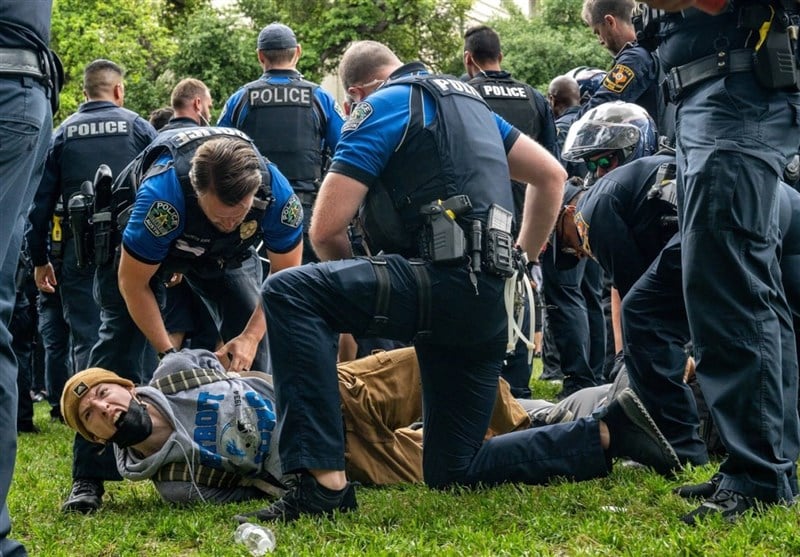Strategies of universities to suppress protesting students in America.
In the past few days, the American police have arrested more than 900 students who demonstrated throughout the country to support Palestine and oppose the crimes of the Zionist regime in Gaza. Despite this, the intensification of the repressions not only did not cause the demonstrations to subside but also caused the anger of the protesters and the flare-up of the protests.
Juan Donovan, an American sociologist who has dedicated his work to studying social movements, predicted in a note in the Guardian newspaper that in the coming weeks, we will see the expansion of student camps in support of Palestine.
However, American universities are trying to force students to withdraw with a combination of repressive police measures and disciplinary orders. CNN reported that dozens of students who protested the war in Gaza were arrested at New York and Yale universities.
Militarization of universities
At the University of Texas at Austin, police in riot gear and on horseback tried to disperse the protesters. Nearly 100 people were arrested at the University of Southern California. At Emory University in Atlanta, police fired pepper spray at protesters and arrested 28 people, including several professors. At Emerson College in Boston, 108 other protesters were arrested and four officers were injured.
These violent crackdowns have reignited long-running debates about the role of campus policing. Analysts say that the militarization of the police after the events of September 11, 2001, which was visible in the protests of recent years, has shown itself this time in these demonstrations.
In an interview with CNN, Zach Greenberg, president of the American Foundation for Civil Rights and Freedoms, said that police presence on campus is a “severe action” that should be reserved for direct and more serious threats to campus.
He added that the police entering the university would destroy the trust between the university and the students, who would see the police arresting their classmates and maybe their professors in front of their eyes. “In many ways, it’s a dark age for universities,” Greenberg said.
While human rights activists describe the entry of police into universities and the violent arrest of students as a violation of the freedom of speech and academic freedom of these students, some other activists warn that focusing on American issues may divert the world’s attention from the suffering of the Palestinian people.

